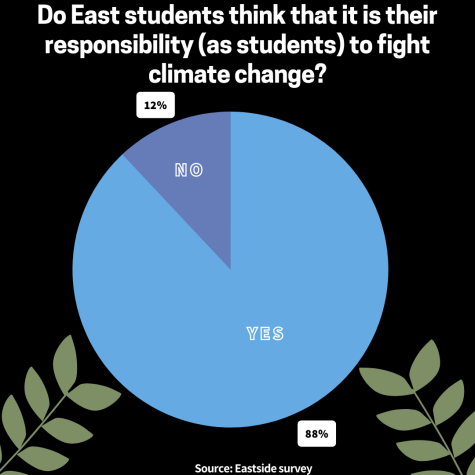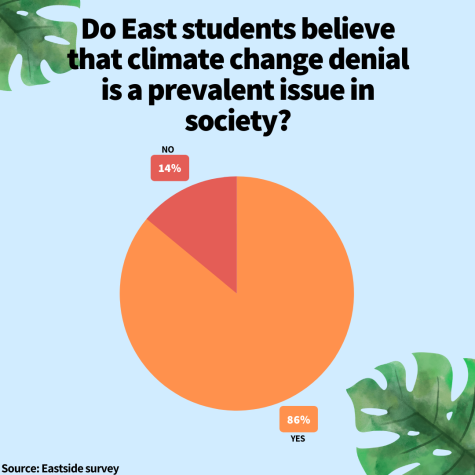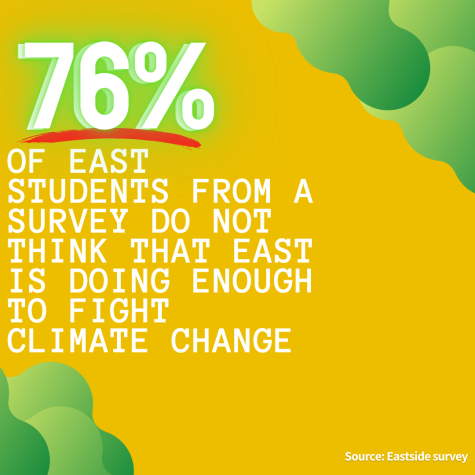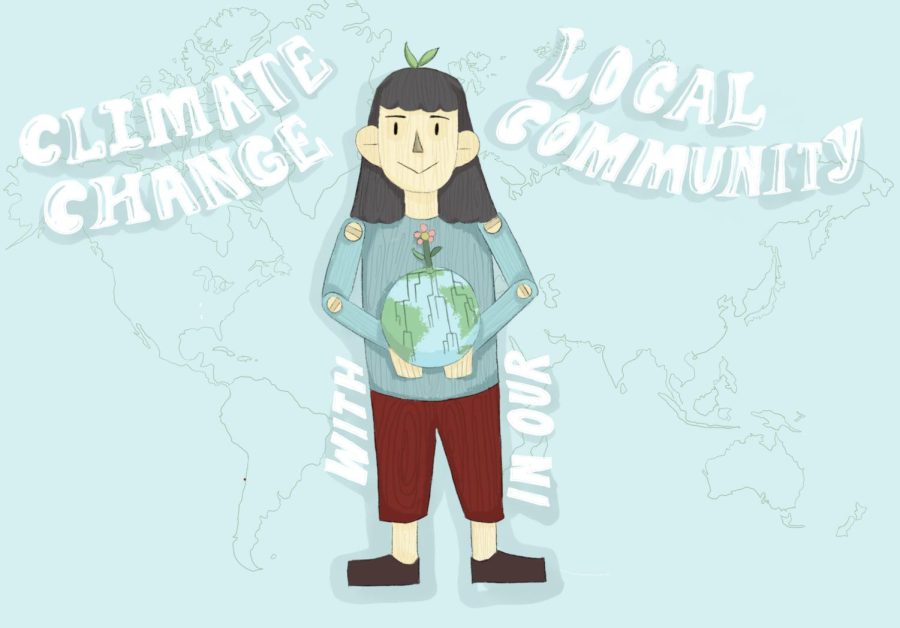Exploring student perspectives on climate change
December 15, 2021
In recent years, combating climate change has become an increasingly pressing issue nationally and globally. In August of 2021, the United Nations (UN) released a report outlining the potential long-term effects of current human activities on the future climate. According to their research, the current progression of climate change could potentially lead to extreme, noticeable changes to daily life–such as a potential global temperature increase of 1.5 degrees Celsius (34.7 degrees Fahrenheit) within the next two decades. Many of these changes may not impact the current generation of adults, but they will have much more noticeable effects on the next generations.

According to a 2021 poll from Pew Research Center, 67% of adult Generation Z members identified maintaining the climate and a sustainable planet as a top priority. Even current students have begun to recognize the importance of climate change–with many student groups and protests forming across the country to address the issue. This rise of awareness leads to a compelling question: how does the Cherry Hill East community view climate change?
In a recent Eastside survey, almost 100% of respondents — all of whom were East students — identified climate change as an “important issue in the world.”
This survey was given online to approximately 50 students to determine their perspectives on climate change and the younger generations’ roles in combating it. Out of these participants, over half were in the 10th grade. These demographics slightly skew the data since the distribution of respondents by year isn’t proportional to the population at East. However, the results of this survey are still compelling and align with other sources — such as the previously mentioned Pew Research poll on views on climate change by generation.
Most of the students surveyed expressed concern for their future if climate change patterns continue. When asked to list words that describe their feelings towards the climate crisis, the most common responses were concerned (26%) and anxious (38%). Furthermore, most of those surveyed used similar negative emotions, mentioning words like worried and scared several times.
“I am anxious because future generations might not get to experience what we have today – clean beaches to swim in, snow to play in, and more,” wrote Angelina Li (‘23) when asked about her concerns about climate change. Like Li, many students fear the climate crisis will negatively impact the lives of those in future generations.

Along with fears surrounding the effects of climate change, many also expressed frustration with climate change deniers. 86% of respondents referred to climate change denial as a “prevalent issue in society.” Though only a few mentioned knowing these deniers personally, many cited their decision to ignore the issue as a hindrance to the preservation of our planet.
“Climate change is a real thing that we must come to terms with– whether we want to address it or not–because it is our responsibility to protect the natural world.,” wrote Grace Yoon (’24). Other students also emphasized the importance of acknowledging climate change as a scientific fact rather than a theory.
While most students surveyed had opinions on the climate crisis, many didn’t know what East was doing to address these issues. Additionally, many who did know East’s policies viewed them as inadequate.
76% said they did not believe East was doing enough to address the climate crisis.

“We don’t talk a lot about it in school,” wrote Heidi Kwak (‘24). Kwak also wrote she felt “unaware” when asked to list words to describe how she feels about climate change. Many students share the sentiment that the school does not do enough to educate students about the climate or make an effort to make the school more environmentally conscious. These students feel the need to take matters into their own hands.
Sean Ladinsky (’25) said he was “disappointed” in the current adult leaders and government officials for failing to address the crisis directly. Because of this, he and 88% of respondents said students have the responsibility to help fight climate change. However, Landisky also believes that adults also need to take accountability for their contributions to climate change.
“Adults should not completely depend on us to fix [climate change],” Ladinsky also wrote.
Overall, the students surveyed were generally wary about the impending effects of the climate crisis. Consequently, world leaders have begun addressing the younger generations’ environmental concerns.
“My generation has largely failed until now to preserve both justice in the world and to preserve the planet. It is your generation that must make us be accountable to make sure that we don’t betray the future of humankind,” said United Nations Secretary-General António Guterres at the 2019 UN Youth Climate Summit. As the time to reverse the effects of climate change decreases, it is evident that the younger generation has grown increasingly more concerned with the planet’s future.
The East community has slowly begun to recognize the impending threat of the climate crisis. However, one thing is clear–the students want action, not passivity.
What are some words that East students associate with climate change? Roll your mouse over the interactive to learn more! (Data from an Eastside survey)
What are some feelings that East students feel about climate change? Roll your mouse over the interactive to learn more! (Data from an Eastside survey)
